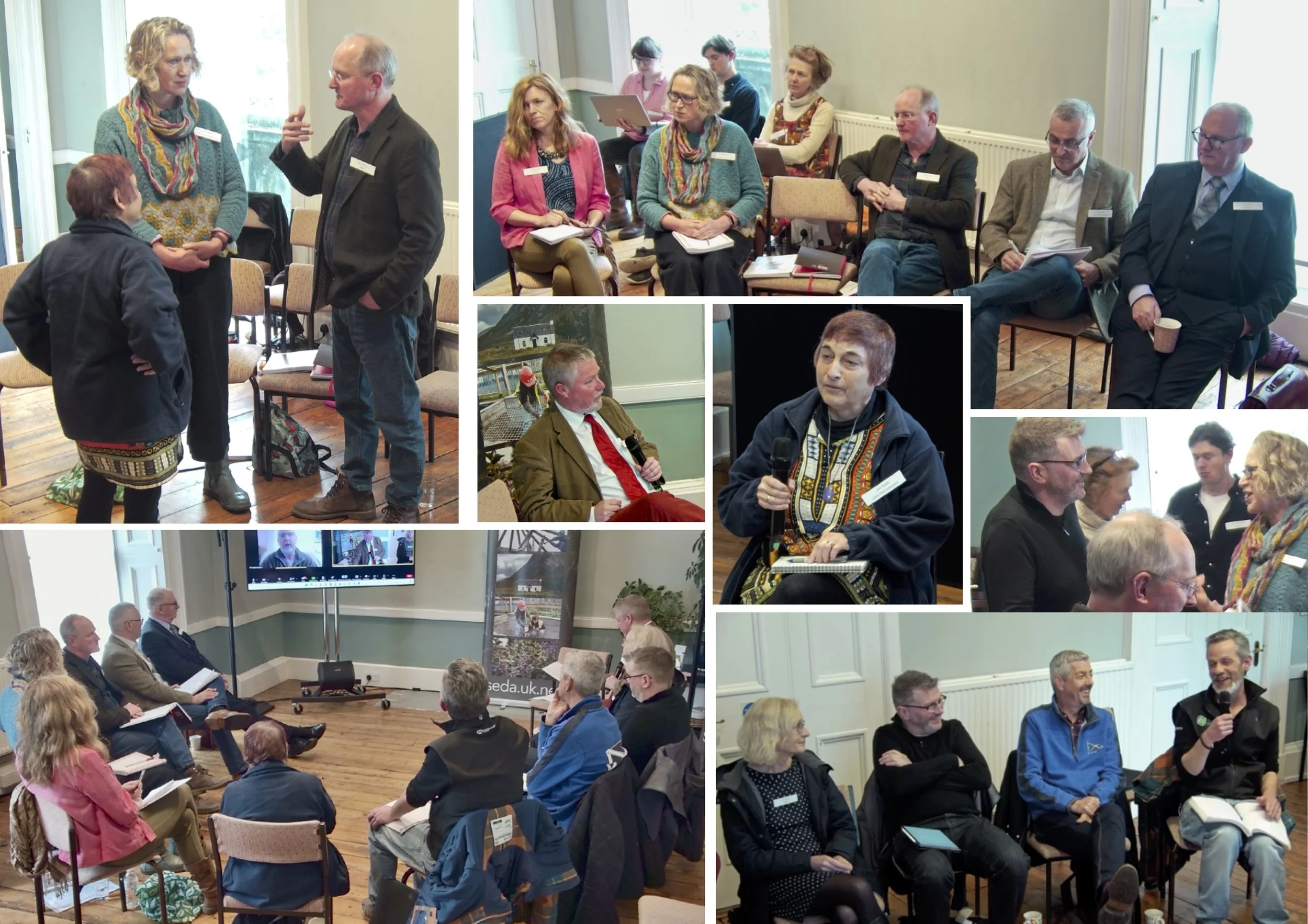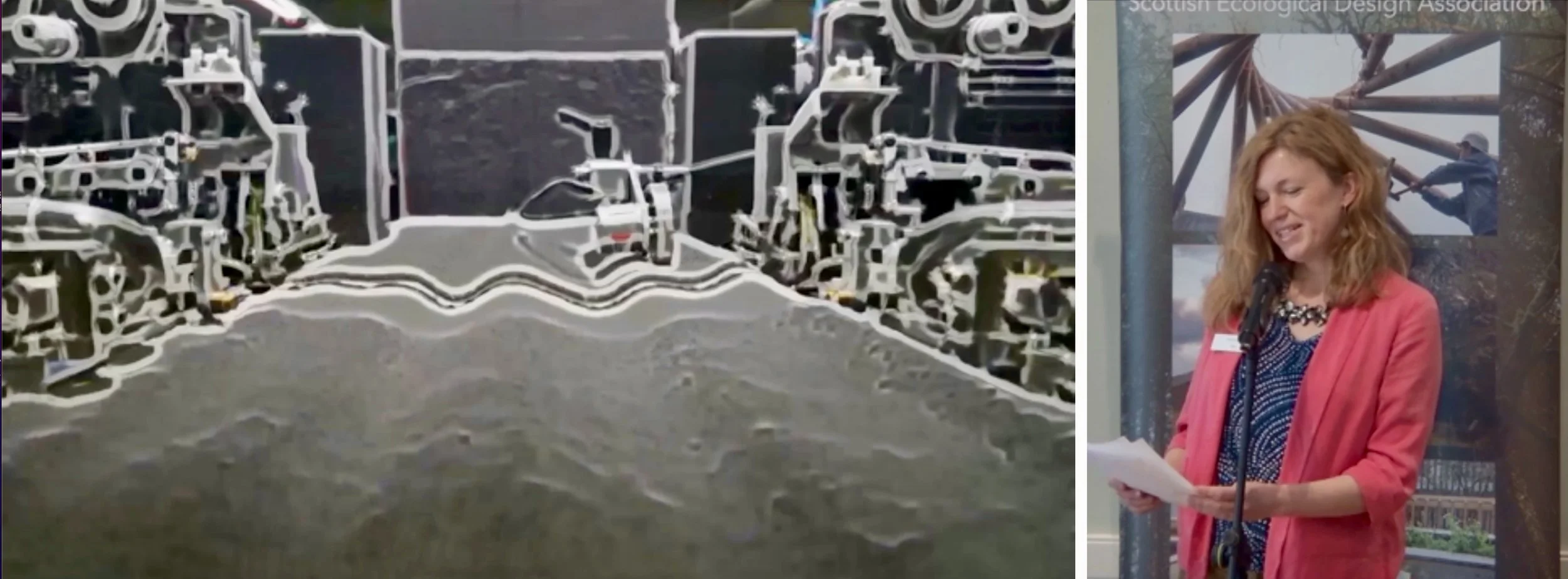Is the bio-economy all in the mind?
By Nick Drainey, journalist and chair of “Imagining a fossil fuel free future”
On arriving at the Subud Centre in Perth the first thought of many would have been that they would have quite liked to book in for the weekend.
SEDA Land’s final event in a series of four to discuss the bio-economy was being held in the listed Georgian house, set amid its own grounds overlooking the parkland of South Inch with Moncreiffe Hill forming a backdrop.
An impressive setting indeed, but with a calming sense of permanence which allowed minds to be concentrated on important matters at hand.
The event’s title was certainly ambitious – Imagining a fossil fuel free future. The aim of having a world where fossil fuels are no longer needed is probably something most people would aspire to. However, many would be forgiven for filing it under “too difficult”.
Not in Perth. The attendees in the room and online were in no doubt that a bio-economy could thrive, and that there were already signs of this happening in some areas. This was a positive event – yes, there was some big scientific, political, and economic discussion but the overwhelming vibe was “can do” – the big question was how.
The main purpose of this event was to discuss what the Scottish Government can and should be doing to help start-ups as well as support existing companies in the bio-economy sector.
As a journalist, the first thing that usually comes to mind is money. But it was apparent from the discussion that using money as a solution would be something of a blunt instrument. In fact, other than most agreeing that they could always do with more funding, financial support was relatively low on the agenda.
The gathering was broad – from chemical scientists to forestry experts, house builders to textile producers, covering bioproducts using hemp, sugar beet, wool, insects and worms.
Despite this eclectic group, there was a lot of consensus and central to it was the mindset – not in a chin-stroking, whimsical way but in a practical forward-looking attitude with an overriding aim of taking all parts of society on a journey towards growing the bio-economy.
Journalists like me usually concentrate on what a government is doing wrong but the SEDA Land event was much more grown up than that – it wanted to find solutions.
Bringing together a unified front from researchers, businesses, the Scottish Government AND the public is quite a challenge. When most in Perth also called for better regulation to make sure climate-friendly practices have the chance to compete, actually outcompete, traditional commerce it seemed at first that the bar was going to be too high.
But then came the idea of mind games – change the mindset and you can change the world. Make all the players, from the public to the Scottish Government, approach this differently in a way that helps everyday life and the climate.
That could be using hemp spray to stop moisture and damp in buildings, sugar beet to produce chemicals that are not derived from fossil fuel, or even insects as a form of protein.
It was a positive day with positive ideas – one that many could learn from. I didn’t book in to the Subud Centre for the weekend but did enjoy the sandwiches.
The SEDA Land’s official report about the event will be available on the website soon.
Still from “Inspired by Hemp” by Tom Lyne Sophie Cooke reading “Hemp”



